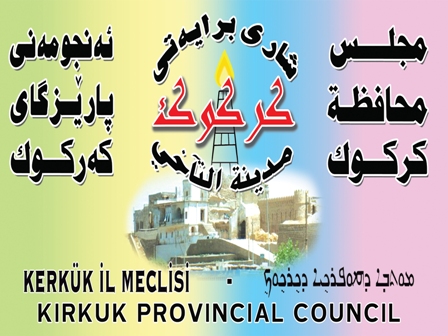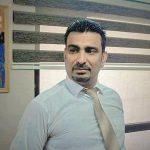Washington Kurdish Institute
By: Burhan Haji Sulaiman
January 30, 2017
Over 12 years since its last local elections, it appears that the province of Kirkuk may soon be allowed to once again hold elections, allowing voters to replace the veteran members of the incumbent provincial council with real representatives of the will of the people.
Due to restrictive terms imposed by Baghdad, Kirkuk was deprived of the right of holding elections during the two most recent series of local Iraqi elections, 2009 and 2013. One of the set of terms from Baghdad compelled the province of Kirkuk to form a committee that included two deputies from each of the main constituencies in Kirkuk, who would be chosen by the various blocs within the provincial council. Per this set of terms, the proposed representatives of each constituency would then need approval from various ministries within Iraq as well as the United Nations. Following that onerous step, the committee would only then present recommendations to the Parliament, requiring a parliamentary vote. Indeed, such a process, involving many antagonistic concerned parties with the right to delay, if not veto, any forward progress, was destined to fail, especially in light of the general inefficiencies of the parliament in Baghdad. In practice, this was also impossible due to many factors including certain Turkmen parties’ rejection of these terms, as they are over-represented in the provincial council and are thus not incentivized to work for a change in the status quo. Indeed Kirkuk’s deputies, especially the Kurds, should be blamed since they were not able to prevent this counterproductive, anti-Kirkuk legislation from passing.
After many years, Iraq’s Independent High Electoral Commission (IHEC), in coordination with the cabinet, decided to hold the provincial elections on September 16, 2017, and the issue of Kirkuk one again arose. Unfortunately, yet again it is not straightforward and the will of the people of the province is once again at risk of being disregarded by Iraq, as the government in Baghdad has been unclear about whether or not these nation-wide provincial elections will occur in Kirkuk, leaving a distinct possibility that, once again, the people of Kirkuk will not be given the opportunity to choose their representatives.
This time, despite the lack of clarity from Baghdad, there are a few reasons to be optimistic that elections in Kirkuk may actually occur. Arab parties in Kirkuk want elections because they are underrepresented in the provincial council, and the expected liberation of predominantly Arab Hawija is on the horizon. Additionally, half of the Turkmen parties now support near-term elections, a change in approach compared to 2013. To my knowledge, the majority of the Turkmen constituents are disappointed with their members at the provincial council due to poor performance. As for the Christians of Kirkuk, they have seats on the provincial council due to an established quota and can also be expected to support new elections. The Kurds, who are the majority in the province, also demand new elections even though they will lose few seats since the Arabs will participate more widely than 2005 elections. As Kirkuk’s governor, Dr. Najmaldin Karim is one of the strongest voices demanding elections, this position is likely to find significant support – in 2014 parliamentary elections, Dr. Karim won over 150,000 votes, nearly 50% more than the next 10 candidates combined. Moreover, the Kurdish Peshmerga forces’ role in defending the city since June 2014 following the departure of Iraqi armed forces in the face of the ISIS terrorist group have earned a degree of trust from the non-Kurds for Kurdish forces in the city despite some disagreements at the political level between politicians.
If regional powers who narrowly pursue their own specific agendas in Iraq, including most notably Iran and Turkey, do not intervene, I think there is a strong chance that Kirkuk will finally hold elections. Indeed, the US must bear some responsibility to encourage the democratic process in Kirkuk and elsewhere in Iraq as the US orchestrated the invasion of Iraq and removal of the dictator Saddam Hussein, and brought the practice of representative democracy to Iraq after decades of dictatorial rule. With respect to elections in Kirkuk, the US should commit once again to “support and strengthen Iraq’s democracy and its democratic institutions” as stated in the Strategic Framework Agreement for a Relationship of Friendship and Cooperation between the United States of America and the Republic of Iraq. The people of Kirkuk hope that President Trump’s administration will once again strengthen Washington’s role in promoting democracy in Iraq, following the less involved policy of the previous administration, which unfortunately allowed for increased meddling from both Iran and Turkey in the country, and, more broadly, throughout the region. Reopening the US consulate in Kirkuk, which has been closed since 2012, would send a positive message to the people of the city and the province, who have been living their lives on or near the front lines of the war against ISIS, which has become a key foreign policy issue in the US and throughout the world, and bravely resisting and repeatedly defeating the terror group and frustrating ISIS’ designs of expansion.
For Kurds, a resolute and united message to the new administration in Washington is a must in order to draw attention to, if not altogether solve, the issue of Kirkuk in Baghdad. Following the eventual defeat of ISIS, a number of issues will need to be addressed by the Kurds and the central government in Baghdad including oil exports, regional and provincial budget allocations, the presence of the Peshmerga forces in various areas, and even independence for Iraqi Kurdistan – all issues inextricably tied to Kirkuk itself. Thus, Kirkuk’s elections are all the more necessary, as the province deserves to select its representatives in a free, fair, and open manner, replacing those chosen over 12 years ago using closed list elections. The new council participate, as real representatives of the people of the province, in future pivotal talks between Baghdad and Kurdistan over Kirkuk when the time comes to discuss these issues of utmost importance.
While Kirkuk’s political parties, representing all of the components of the multi-ethnic city, are divided on many issues, we have reached to unprecedented phase in the history of the province where the majority of the parties agree in the demand for new elections. Indeed, nearly 14 years after the elimination of the dictatorial regime of Saddam Hussein and the establishment of democracy in Iraq, the topic of whether or not to hold long overdue elections in a specific province of the country should not be up for discussion. The people of Kirkuk must be allowed a voice. A province that provides so much of the country’s oil wealth, so beautifully reflects the nation’s diversity, and has sacrificed so much in the ongoing war against ISIS certainly deserves it.
Burhan Haji Sulaiman is Editor in Chief for Hawal News Agency based in Kirkuk Province, Iraq.
Disclaimer: The views, opinions, and positions expressed by authors and contributes do not necessary reflect those on the WKI.


